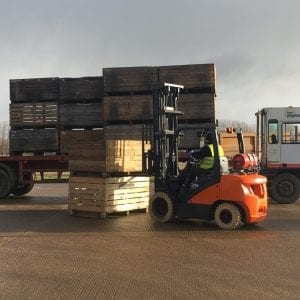
View original at www.logisticsmanager.com
For SMEs, an investment in materials handling equipment means an investment in the future of the business. So, how does and SME benefit from increased operational efficiency? Christopher Walton investigates… When it comes to buying and operating materials handling equipment SMEs require one thing above anything else: flexibility. This flexibility manifests itself in the ways that equipment is purchased, the ways it is run in the warehouse and ways it can adapt to future requirements. Furthermore, SMEs have to take into account wider concerns over Brexit, the economy and growing political paralysis, as well as a whole raft of on-going commercial challenges, from unpredictable spikes in demand and changing markets, to shortened contract periods and sudden shifts in business strategy. Alan Clark, asset manager at Doosan Industrial Vehicle UK, says that such uncertainty makes it difficult to commit to long-term contracts on materials handling equipment. “So how can businesses provide the agility needed to respond to changing operational requirements, with minimum exposure to risk?” he asks. “Flexibility to hire and de-hire at short notice allows for greater responsiveness when it’s needed and can offer additional support to an existing fleet – without the prospect of being burdened with unnecessary costs stretching into the future, or a punitive cancellation fee.” To that end, he says, Clark says short-term rental can be used strategically to supplement the handling capacity of the forklift fleet and add the flexibility needed to cope with surges in demand or a sudden change in direction. “To achieve the best results, it’s necessary to understand the dynamics of your own business as much as possible, to identify opportunities for creating flexibility and to plan in how short-term rental can work to your advantage,” he says. Tracy Brooks, logistics industry manager at Hyster Europe, says that logistics is, […]



Leave a Reply
You must be logged in to post a comment.